Safety Tips for Your Family Safari in Africa
Did you know over 1.5 million tourists visit Africa for a family safari every year? Many have a safe and fun time.
But, a safari in Africa can be risky if you’re not ready. You need to plan carefully and know the dangers.
To have a great time, follow important safety tips. Being informed and careful can help avoid risks. This way, you’ll make memories that last a lifetime with your family.
Before you go, read this article for tips on a family safari. It will help you stay safe and have a thrilling adventure.
Planning a Safe Safari in Africa with Your Family
Planning a African safari with your family is key. Focus on safety and fun activities for all ages. A well-planned safari can change your life, blending adventure, learning, and family time.
Choosing Family-Friendly Safari Destinations
Look for safari destinations that welcome families. Consider travel ease, where to stay, and activities available.
Top Countries for First-Time Family Safaris
South Africa, Kenya, and Tanzania are great for beginners. They have safari tour packages made for families.
| Country | Best For | Notable Parks/Reserves |
|---|---|---|
| South Africa | First-time safari-goers, diverse landscapes | Kruger National Park, Sabi Sands |
| Kenya | Wildlife viewing, Maasai culture | Masai Mara National Reserve |
| Tanzania | Large mammal migrations, diverse ecosystems | Serengeti National Park, Ngorongoro Conservation Area |
Private Reserves vs. National Parks
Private reserves offer a unique, guided experience. National parks give a wider wildlife safari view. Choose based on your family’s likes.
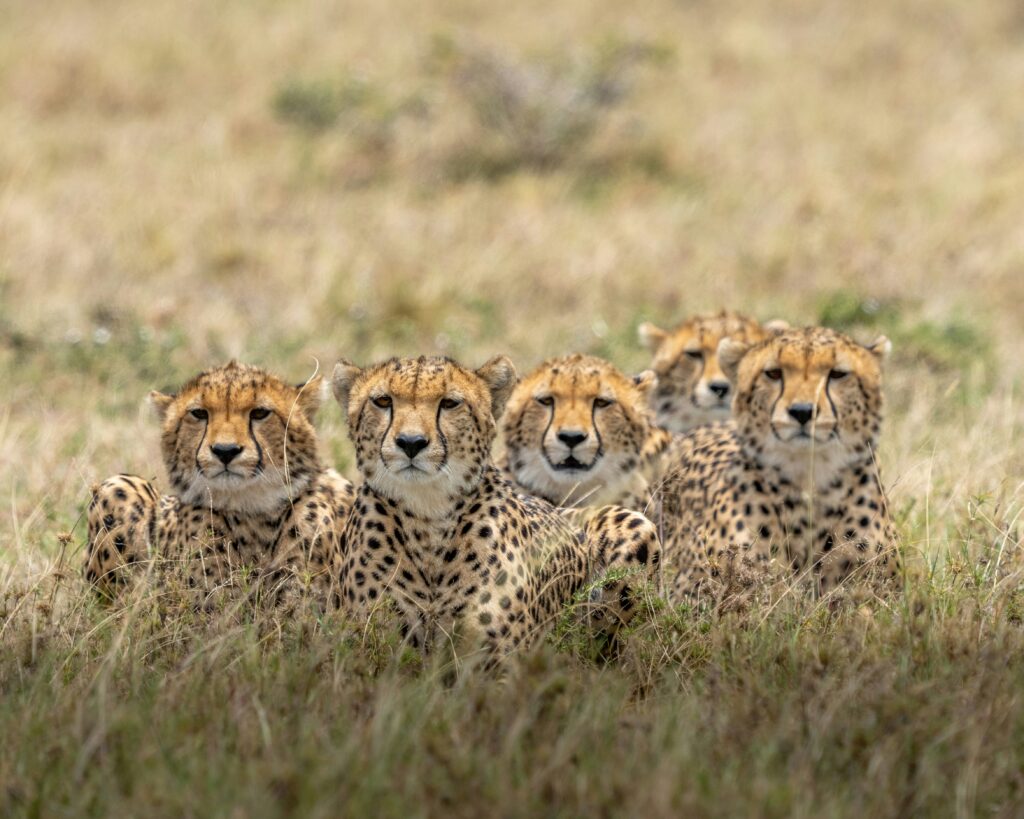
Best Time of Year for Family Safaris
The right time for your safari matters a lot. Weather and when to see wildlife are key.
Weather Considerations
The dry season is best for seeing animals. They gather near water.
Wildlife Viewing Seasons
Some seasons offer special views, like the Great Migration in Tanzania and Kenya.
Selecting Age-Appropriate Safari Activities
Pick activities that fit your kids’ ages and interests. Many places offer family-friendly activities.
Essential Health Precautions Before Departure
Before you go on your African safari, it’s key to take health steps. This ensures a safe and fun trip for your family. Knowing about health risks can greatly improve your experience.
Required and Recommended Vaccinations
Vaccinations are vital, more so in places like Africa where diseases are common. Talk to a doctor to find out what shots you need.
Age-Specific Vaccination Guidelines
Age affects vaccination needs. Some shots are for babies as young as 6 weeks. Others are for different ages.
Timing Your Vaccinations
Some shots need more than one dose or a specific time before you travel. Plan early to keep your family safe.
Malaria Prevention Strategies
Malaria is a big risk in many African countries. You can prevent it with medicine and other methods.
Child-Safe Antimalarial Options
Choosing safe antimalarial drugs for kids is important. Some come in kid-friendly forms, making them safer for young travelers.
Physical Prevention Methods
Using bed nets, wearing protective clothes, and applying repellent also help. These steps can lower malaria risk a lot.
Comprehensive Travel Insurance for Safari Adventures
Travel insurance is often overlooked but very important. It covers unexpected medical or travel costs.
Medical Evacuation Coverage
For safaris, medical evacuation coverage is key. It helps get you to a good hospital if you have a serious problem.
Trip Cancellation Protection
Trip cancellation insurance can refund your money if your trip is cancelled. This is for unexpected events.
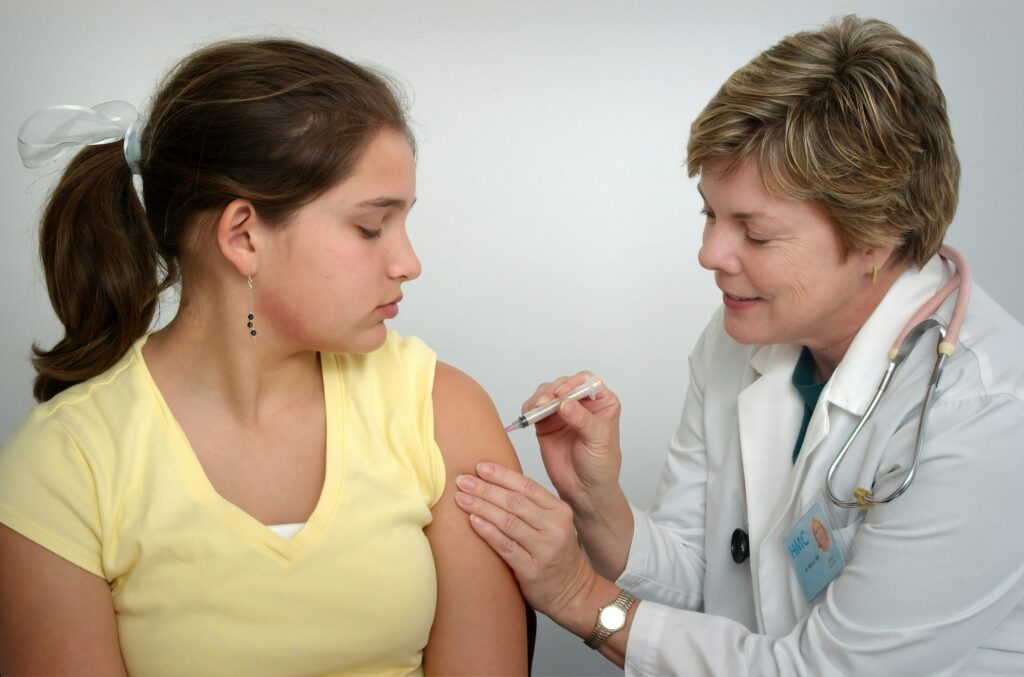
Packing Smart for a Safe Safari Experience
Going on a family safari in Africa means packing the right gear. It’s key for a safe and fun trip. Being ready for different places and situations is important.
Clothing and Gear for Different Safari Environments
Your clothes and gear should match the safari place. For example, savannah and jungle safaris need different outfits.
Sun Protection Essentials
Sun protection is a must. Pack sunscreen, a hat, and sunglasses to stay safe from the sun.
Insect-Repellent Clothing
Insect-repellent clothing helps avoid bugs and diseases. Look for clothes with built-in bug repellent.
First Aid Kit Essentials for Families
A good first aid kit is a must. It should have basic medical items, bandages, and any needed medicines.
Child-Specific Medications
Traveling with kids? Remember their medicines and supplies. This includes pain relievers and antacids.
Treating Common Safari Ailments
| Ailment | Symptoms | Treatment |
|---|---|---|
| Sunburn | Redness, pain | Apply sunscreen, cool compress |
| Insect bites | Itching, swelling | Antihistamine, anti-itch cream |
Technology and Communication Tools
Don’t forget GPS and navigation devices. They help you find your way.
Emergency Communication Options
Make sure you have emergency communication options. A satellite phone is good for places without cell service.
Packing smart and being ready makes your safari trip safe and fun for your family.
Wildlife Safety Rules for Children and Parents
Going on a wildlife safari is exciting, but safety comes first. Knowing and following wildlife safety rules is key for your family’s safety. It’s important to plan carefully and stay alert.
Teaching Children About Wildlife Behavior
Teaching kids about wildlife behavior is a must for safari safety. They need to know about the animals they might see and how to act.
Age-Appropriate Wildlife Education
It’s important to teach kids based on their age. Young ones should learn simple rules like staying close and not making noise. Older kids can learn more about animal behaviors and warning signs.
Recognizing Warning Signs from Animals
Knowing when animals are scared or threatened is key. For example, a tense dog or a snake’s hiss means they’re upset.
Safe Distances from Animals
Keeping a safe distance from wildlife is important during game drives. It keeps you safe and respects the animals’ space.
Vehicle Safety During Game Drives
During game drives, stay in the vehicle and keep hands and feet inside. This helps avoid animals reacting to humans.
Walking Safari Precautions
On a walking safari, always stay with your group and follow the guide. Guides know how to keep you safe from threats.
Nighttime Wildlife Awareness
Nighttime brings its own challenges. Being aware of your surroundings and following safety rules at your lodge or camp is important.
Camp and Lodge Safety After Dark
Lodges and camps have safety measures like electric fencing. Knowing and following these rules is vital for your safety.
Responding to Wildlife Encounters
If you have a wildlife encounter near your camp, stay calm. Follow the guides’ or lodge staff’s instructions to stay safe.
Accommodation Safety on Safari in Africa
Choosing a safe and family-friendly lodge or camp is key for a worry-free safari. When you’re traveling with family, it’s important to look at the safety features and amenities your place offers.
Choosing Family-Friendly Lodges and Camps
Family-friendly lodges and camps meet the needs of families with kids. Look for these when picking your place:
- Child-Friendly Facilities and Services: Things like kids’ clubs, playgrounds, and babysitting can make your safari better for your family.
- Staff Training and Qualifications: Make sure the staff know first aid and can handle emergencies. This adds safety for your family.
Safety Features to Look For
When choosing your place, safety is a big deal. Here are some things to check:
- Secure Sleeping Arrangements: Make sure your room is safe, with locked doors and windows to keep out intruders.
- Fencing and Security Measures: Choose camps with fences and strong security, like guard patrols and cameras.
Night Safety in Unfenced Camps
If your camp isn’t fenced, knowing their night safety is important:
- Escort Procedures: Some camps offer night escorts to and from your room, for extra safety.
- Emergency Protocols: Learn the camp’s emergency plans, like how to evacuate and who to call in an emergency.
By picking your safari accommodation wisely and knowing their safety features, you can have a safe and fun trip with your family.
Food and Water Safety During Your Safari
Keeping food and water safe is key for a fun and healthy safari. When you’re in Africa, watch what you eat and drink. This helps avoid getting sick.
Safe Drinking Water Practices
Having safe drinking water is a must. There are ways to make sure the water is safe.
Water Purification Methods
Water purification tablets or filters can help a lot. Portable water filters are great for family safaris. They’re easy to use and work well.
Bottled Water Guidelines
Choose bottled water that’s sealed well. Also, check where the water comes from and how it’s purified.
Avoiding Foodborne Illnesses
Food safety is just as important. Knowing how food is made and picking the right foods can stop sicknesses.
Food Preparation Standards
Make sure your safari place cooks food right. Food should be hot, and tools should be clean.
High-Risk Foods to Avoid
Stay away from foods like raw meat or veggies. These can be risky on safari.
Dietary Considerations for Children
Children need special food, and on safari, it’s important to keep this in mind. Food safety is key.
Allergies and Special Diets
If your kid has allergies or special needs, tell the safari place ahead of time. They can usually help with this.
Snacks and Meal Planning
Plan meals and snacks ahead. Bringing your kid’s favorite snacks is good, but also count on the lodge’s food.
| Food Safety Tip | Description | Benefit |
|---|---|---|
| Choose Bottled Water | Opt for sealed bottled water | Reduces risk of waterborne diseases |
| Avoid High-Risk Foods | Steer clear of undercooked or raw foods | Prevents foodborne illnesses |
| Inform About Dietary Needs | Notify lodge about allergies or special diets | Ensures child’s dietary needs are met |
Transportation Safety on Your Safari in Africa
Transportation safety is key on your African safari. It’s important to travel safely to enjoy the stunning views and wildlife.
Vehicle Safety Standards for Game Drives
Game drives need safe vehicles. Good safari operators follow strict vehicle safety standards. They check their vehicles often and use ones made for rough terrain.
Child Restraints and Seating
For families, child safety is a must. Some safari vehicles have special child seats. Others might need you to bring your own.
Off-Road Driving Safety
Off-road driving is a big part of safaris. Guides know how to drive safely on tough terrains. But, it’s also key for passengers to listen to safety rules, like keeping their arms and legs inside.
Air Travel Within Africa
For long trips or when you’re short on time, flying is a good choice. Many safaris include domestic flights between places.
Small Aircraft Safety
Small planes used in safaris follow strict safety rules. Operators meet international standards, and pilots are skilled in African skies.
Luggage Restrictions
Know the luggage restrictions when flying to avoid problems. Safari operators usually tell you what to pack and what to leave out.
Road Travel Precautions
For shorter trips or driving between lodges, you need to be careful. Know the local driving rules and watch out for road dangers.
Long-Distance Driving Tips
For long drives, make sure your car is ready. Think about the comfort and safety of everyone. Taking breaks is key for a safe trip.
Night Driving Risks
Night driving is risky, with less visibility and more chance of animal encounters. It’s best to avoid driving at night unless you must.
Cultural Awareness and Local Interactions
Planning a family safari? Remember, cultural awareness makes it better. Talking to local people and understanding their ways can make your trip unforgettable.
Respecting Local Communities and Traditions
When you visit local areas, dress modestly and act with respect. Covering shoulders and knees shows respect in many African cultures.
Appropriate Clothing and Behavior
Wearing the right clothes is key. Stay away from revealing outfits. Think about local customs when picking what to wear.
Gift-Giving Guidelines
Want to give gifts? Choose practical items like clothes or school supplies. Always check with your tour guide on what’s best.
Teaching Children About Cultural Differences
Teach your kids about local culture before and during the trip. Learning about it beforehand helps them appreciate and respect what they see.
Pre-Trip Cultural Education
Do some research on local customs with your kids. This will make their interactions more meaningful.
Photography Etiquette with People and Wildlife
Always ask before taking photos of people. Respect their choice if they say no.
Permission Practices
Find out the local rules for taking pictures. Some places or people might have specific rules.
Responsible Wildlife Photography
Keep a safe distance from wildlife when taking photos. Never try to get a close-up by baiting or disturbing animals.
Emergency Preparedness and Response
When you go on a family safari, it’s key to have a good emergency plan. Being ready for any emergency can make a big difference in your adventure.
Creating a Family Emergency Plan
A family emergency plan should have a few important parts. It helps everyone know what to do in an emergency.
Meeting Points and Procedures
Choose a meeting spot that’s easy to find and know for all. Make a plan for how to meet up if someone gets lost.
Role Assignment for Family Members
Give each family member a role, like who carries a first aid kit. This helps everyone work together better.
Important Contact Information
It’s important to have the right contact info ready. This includes:
Local Emergency Numbers
Save local emergency numbers like police and ambulance in your phone. Also, keep a written copy.
Embassy and Consulate Details
Write down your country’s embassy and consulate contact info for the places you’ll visit.
| Emergency Service | Contact Number | Additional Information |
|---|---|---|
| Local Police | 999 | For immediate assistance |
| Ambulance | 112 | For medical emergencies |
| Embassy | +123456789 | For citizen assistance |
Medical Evacuation Procedures
It’s important to know how to get medical help if needed. This includes:
Recognizing Serious Medical Situations
Learn to spot serious medical issues that need quick help, like bad injuries or sudden illnesses.
Evacuation Transport Options
Being ready and having a clear plan makes your family safari safer and more fun.
Conclusion: Creating Lasting Memories on Your Family Safari
When planning your family safari in Africa, safety is key. Places like Kenya and South Africa offer top-notch safaris. You can see the Serengeti migration, a thrilling experience. Follow the safety tips in this article for a fun and safe trip.
Choosing the right safari spot and knowing wildlife safety rules are important. Look for safari deals to make your trip even better. With good planning, your family safari will be unforgettable.
Whether you’re in South Africa’s savannas or Kenya’s grasslands, a well-planned safari is memorable. Start planning your trip now for an exciting journey through Africa’s wildlife.
FAQ
What is the best time of year for a family safari in Africa?
What vaccinations are required for a safari in Africa?
How can I ensure my family’s safety during a safari?
What should I pack for a family safari in Africa?
Can I take my children on a luxury safari in Africa?
What is the best way to teach children about wildlife behavior during a safari?
Are there any specific safety precautions I should take during a game drive?
What are the benefits of a private reserve safari compared to a national park safari?
How can I ensure that my safari tour operator is environmentally responsible?
What is the average cost of a family safari in Africa?
What is the best time of year for a family safari in Africa?
What vaccinations are required for a safari in Africa?
How can I ensure my family’s safety during a safari?
What should I pack for a family safari in Africa?
Can I take my children on a luxury safari in Africa?
What is the best way to teach children about wildlife behavior during a safari?
Are there any specific safety precautions I should take during a game drive?
What are the benefits of a private reserve safari compared to a national park safari?
How can I ensure that my safari tour operator is environmentally responsible?
What is the average cost of a family safari in Africa?
FAQ
What is the best time of year for a family safari in Africa?
The best time for a family safari in Africa varies by location and wildlife you want to see. The dry season, from May to October, is great for spotting animals. This is because they gather near water sources. The Serengeti Migration, happening from July to August, is also a big draw.
What vaccinations are required for a safari in Africa?
Vaccinations needed for a safari in Africa depend on where you’re going and when. You’ll likely need shots for yellow fever, hepatitis A, and typhoid. Talk to your doctor or a travel clinic to find out what you need.
How can I ensure my family’s safety during a safari?
For a safe safari, pick a trusted tour operator that follows safety rules. Stay in designated areas and keep a safe distance from animals. Always listen to your guide’s instructions. Also, remember to pack essentials like sunscreen and a first aid kit.
What should I pack for a family safari in Africa?
Pack clothes and gear for the African environment. Think lightweight, breathable items, sun hats, and sturdy shoes. Don’t forget sunscreen, insect repellent, and a first aid kit. Bring a portable charger, camera, and binoculars for wildlife watching.
Can I take my children on a luxury safari in Africa?
Yes, many luxury safari lodges and tour operators welcome families. They offer activities and accommodations for kids. Research lodges and tour operators that fit your family’s needs.
What is the best way to teach children about wildlife behavior during a safari?
Teach kids about wildlife before your trip. Guides can share lots of information during the safari. Encourage kids to ask questions and observe animals safely.
Are there any specific safety precautions I should take during a game drive?
Stay in the vehicle and keep a safe distance from animals. Always follow your guide’s instructions. Avoid standing up or leaning out of the vehicle. Keep your hands and feet inside the vehicle.
What are the benefits of a private reserve safari compared to a national park safari?
Private reserve safaris offer a more exclusive experience. They have fewer tourists and more opportunities for guided walks. National park safaris provide a wider range of wildlife and landscapes. Choose based on your family’s preferences.
How can I ensure that my safari tour operator is environmentally responsible?
Look into the tour operator’s environmental policies. Check for eco-tourism or sustainable tourism certifications. These show they care about the environment.
What is the average cost of a family safari in Africa?
The cost of a family safari in Africa varies. Mid-range safaris cost 0 to
FAQ
What is the best time of year for a family safari in Africa?
The best time for a family safari in Africa varies by location and wildlife you want to see. The dry season, from May to October, is great for spotting animals. This is because they gather near water sources. The Serengeti Migration, happening from July to August, is also a big draw.
What vaccinations are required for a safari in Africa?
Vaccinations needed for a safari in Africa depend on where you’re going and when. You’ll likely need shots for yellow fever, hepatitis A, and typhoid. Talk to your doctor or a travel clinic to find out what you need.
How can I ensure my family’s safety during a safari?
For a safe safari, pick a trusted tour operator that follows safety rules. Stay in designated areas and keep a safe distance from animals. Always listen to your guide’s instructions. Also, remember to pack essentials like sunscreen and a first aid kit.
What should I pack for a family safari in Africa?
Pack clothes and gear for the African environment. Think lightweight, breathable items, sun hats, and sturdy shoes. Don’t forget sunscreen, insect repellent, and a first aid kit. Bring a portable charger, camera, and binoculars for wildlife watching.
Can I take my children on a luxury safari in Africa?
Yes, many luxury safari lodges and tour operators welcome families. They offer activities and accommodations for kids. Research lodges and tour operators that fit your family’s needs.
What is the best way to teach children about wildlife behavior during a safari?
Teach kids about wildlife before your trip. Guides can share lots of information during the safari. Encourage kids to ask questions and observe animals safely.
Are there any specific safety precautions I should take during a game drive?
Stay in the vehicle and keep a safe distance from animals. Always follow your guide’s instructions. Avoid standing up or leaning out of the vehicle. Keep your hands and feet inside the vehicle.
What are the benefits of a private reserve safari compared to a national park safari?
Private reserve safaris offer a more exclusive experience. They have fewer tourists and more opportunities for guided walks. National park safaris provide a wider range of wildlife and landscapes. Choose based on your family’s preferences.
How can I ensure that my safari tour operator is environmentally responsible?
Look into the tour operator’s environmental policies. Check for eco-tourism or sustainable tourism certifications. These show they care about the environment.
What is the average cost of a family safari in Africa?
The cost of a family safari in Africa varies. Mid-range safaris cost $500 to $1,500 per person per day. Luxury safaris can be $2,000 to $5,000 or more. Remember to budget for flights, vaccinations, and travel insurance too.
,500 per person per day. Luxury safaris can be ,000 to ,000 or more. Remember to budget for flights, vaccinations, and travel insurance too.

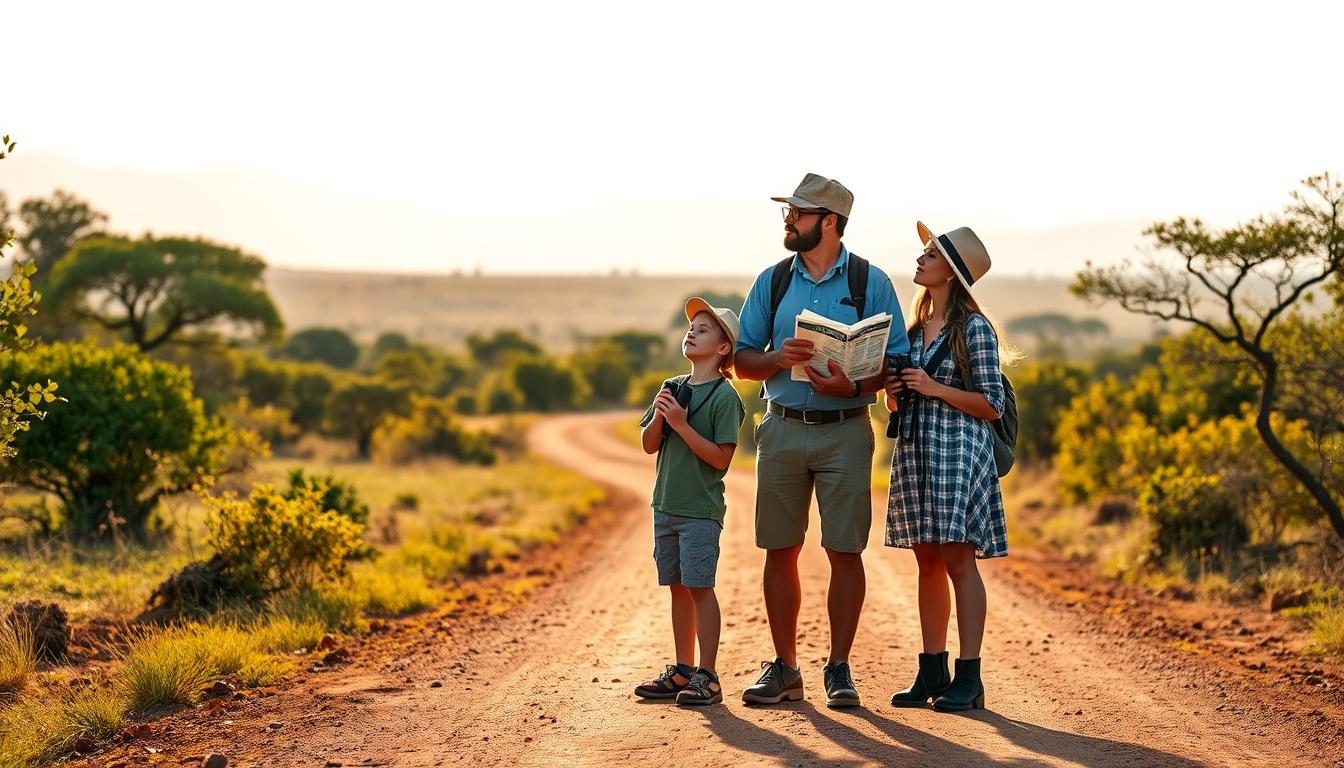
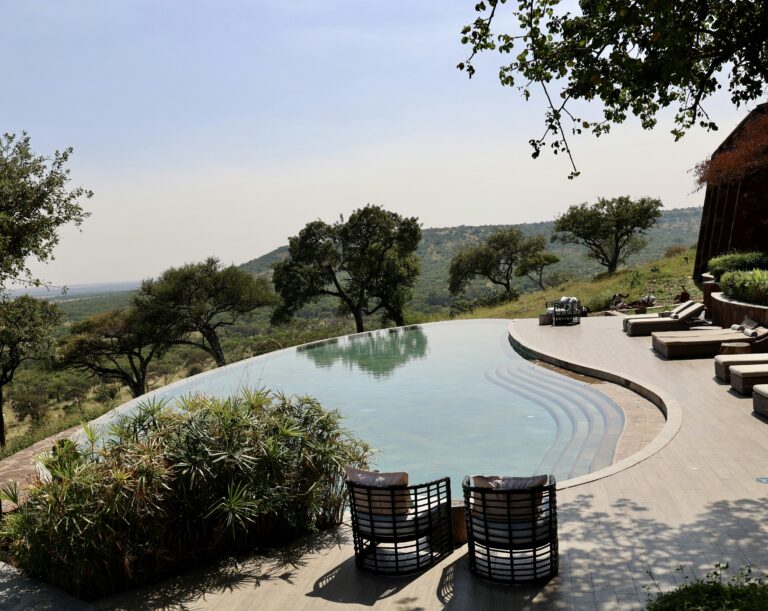

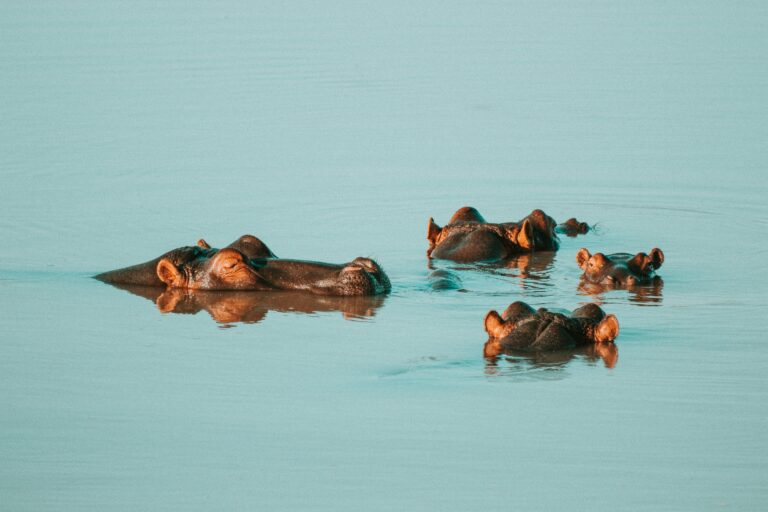
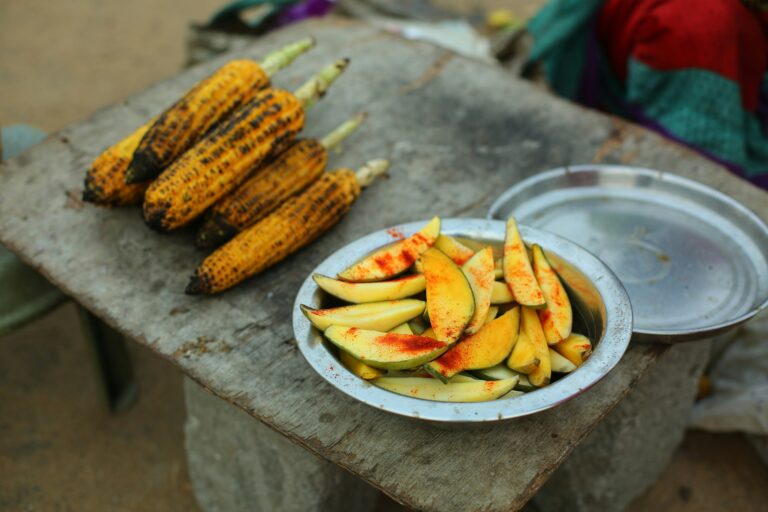
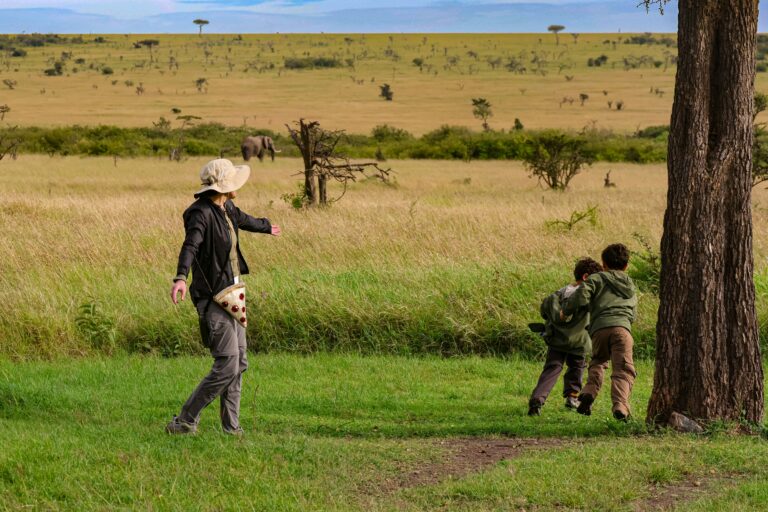
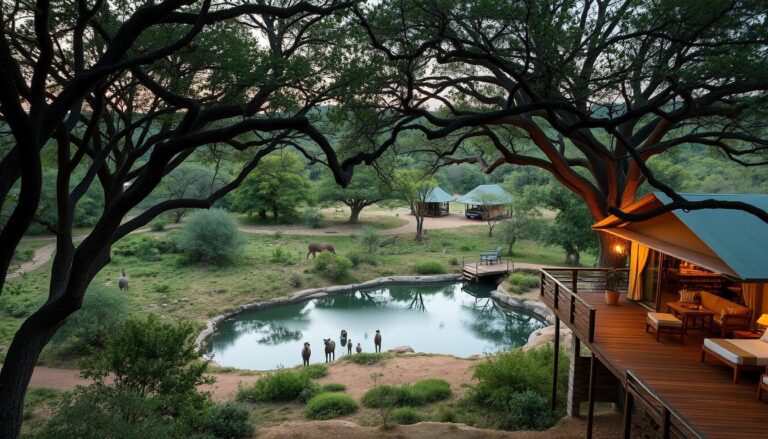
3 Comments